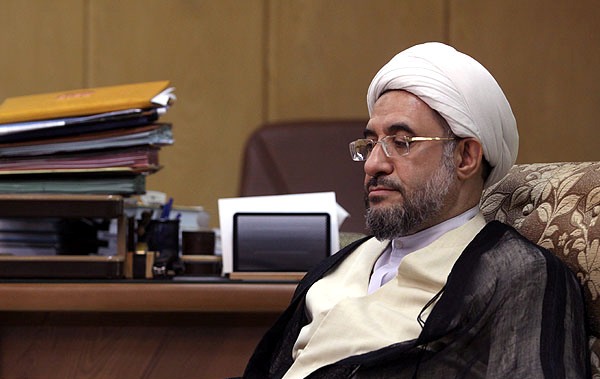Ayatollah Araki:
Rasa – Ayatollah Araki said: “Imam Musa Sadr made part of his endeavor to found the structure of the methodology of Islamic jurisprudence”.

Rasa News Agency Reports – Ayatollah Mohsen Araki, the secretary general of the Forum of Proximity of Islamic Schools of Thought, in the second general assembly of board of Jurisprudential fundamentals, held on the occasion of the birth anniversary and commemoration of the Imam Musa Al-Sadr, mentioned the services and innovations of this honorable martyr and said: “Imam Al-Sadr tried to find the structure of the methodology of Islamic jurisprudence.”
Mentioning the Imam Al-Sadr’s definition of the methodology of Islamic jurisprudence as the most completed definition, he added: “Our grandees have had endeavors in the same field but Imam Al-Sadr has had the best definition so far. He has defined the subject of the methodology of Islamic jurisprudence as the common proofs of deduction.”
The secretary general of the Forum of Proximity of Islamic Schools of Thought, pointed out that the relation between the knowledge of expressions and the proof was about to be denied for being ambiguous and stated: “The knowledge expressions have been one of the fundamental issues of the methodology and most of the innovations took place in this section, some were trying to bring out this knowledge from the methodology and were saying these subjects are related to the lexical studies and are not related to the discursive knowledge.”
Ayatollah Araki continued: “Sayed Al-Sadr tried to define one connection to different knowledge of methodology in order to have coherence. Organizing the methodology of the Islamic jurisprudence and bringing the knowledge together in a single pattern, along with defining a logical relation between them was a fundamental issues and one of the innovations of him.”
Mentioning that in the lexical studies, anyone look toward words, he added: “Some of the grandee consider these as lexical knowledge and say this has nothing to do with the methodology, this perspective would harm the methodology. But actually methodology is not about words and it’s about semantics. Lexical studies are studies of expressions not semantics.”
The secretary general of the Forum of Proximity of Islamic Schools of Thought continued: “In lexical studies the rules of correction of discourse are being concerned not the rules of correctness of semantics. This is a different study. An expert in Islamic jurisprudence must be able to deduct the purpose of the Islamic legislative system by verbal evidences. So we need to codify rules for understanding the purpose of the theologian in order to inference the system.”
Explaining one of the problems to be face by the seminaries young students as their lack of awareness about the usage of methodology of Islamic jurisprudence, Ayatollah Araki said: “Accusations about this knowledge is because of this issue. While this knowledge has a high usage and all of its studies are necessary.”
In mentioning Imam Al-Sadr’s allotment of semantics, he said: “Imam Musa Al-Sadr has divided the semantics into three groups of conceptual, primary judgment and second judgment. Giving structure to the semantics was another innovation of him.”
The secretary general of the Forum of Proximity of Islamic Schools of Thought, explained Imam Al-Sadr’s definition of the issue of convention as another innovation saying: “He defines the quiddity of the fact of convention and explains how the relation between words and meaning appears.”
Ayatollah Araki, pointed out that today’s world is strongly in need of the methodology and said: “One of the ways of communication for us in the field of knowledge were Sunnis and in this case the methodology have a great necessity. By this mean we can strengthen with Al-Azhar University and even with Saudi Arabia. A good clarification of methodology of Islamic jurisprudence and semantics can help us a lot. We can solve so many controversial by this method.”
111/108
Send comment
Please type in your comments in English.
The comments that contain insults or libel to individuals, ethnicities, or contradictions with the laws of the country and religious teachings will not be disclosed